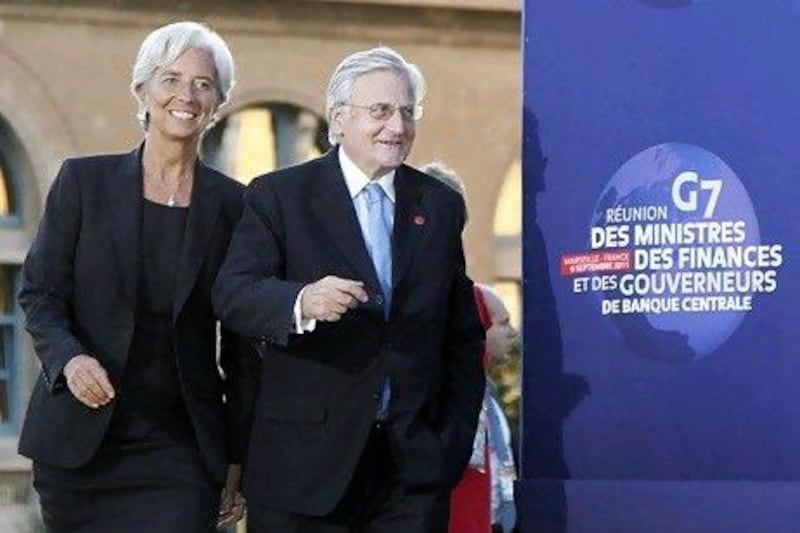Finance ministers and central bank officials from the G7 industrialised nations pledged a "strong and coordinated international response" after discussing the global economic crisis at a two-day summit that ended in France yesterday.
But the statement glossed over differences between members on the correct response to mounting sovereign debt and concentrated on shared purpose rather than specific action to counter "new challenges to global economic recovery".
The absence of any sign of a coherent joint strategy was highlighted in the immediate response by analysts.
"There is no sense of direction, which is entirely expected given that there is no agreement on the path for fiscal policy between the US and Europe," Gilles Moec, a senior economist with Deutsche Bank in London, told Reuters. "And there is no agreement on the path of monetary policy either. In a way, it's a communique which is a list of constraints which policymakers are facing."
His remarks echoed stark contrasts in the views expressed on either side of the Atlantic.
The US believes Europe's stronger economies must combine to help struggling neighbours - notably Greece, Italy and Spain - overcome the debt crises that threaten global recovery.
Germany, on the other hand, is unhappy with the euro-zone policy on bailouts and insists that countries must be tougher in seeking to balance their own books.
One delegate was quoted as admitting the statement was drafted at the insistence of the French but was "meaningless" in practice. He added: "We can't even agree on the problems, so how can we agree on an analysis?"
The summit was held in the southern city of Marseille as turbulence continued to shake financial markets and concern grew over levels of debt in the US and Europe.
The "agreed terms of reference" issued by the group, and described as falling short of the status of a communique, blamed "accumulated imbalances" of the past for new challenges on growth, fiscal deficits and sovereign debt.
"We are committed to a strong and coordinated international response to these challenges," the statement said.
It welcomed the "significant" initiative of the US president, Barack Obama, in launching a US$447bn (Dh1.64 trillion) package of tax incentives, public investment and job creation as part of his battle to strengthen growth.
But it acknowledged that the range of issues facing the world economy had produced heightened tension in the financial markets and "clear signs of a slowdown in global growth".
Concerns over the pace and future of recovery underlined the need for a concerted effort at a global level in support of strong, sustainable and balanced growth, the statement said, urging "ambitious and growth-friendly fiscal consolidation plans rooted within credible fiscal frameworks".
But implicitly acknowledging the lack of international consensus on precisely how this might be achieved, it added: "Fiscal policy faces a delicate balancing act.
"Given the still fragile nature of the recovery, we must tread the difficult path of achieving fiscal adjustment plans while supporting economic activity, taking into account different national circumstances."
The Marseille summit was held amid falls of between 2 and nearly 5 per cent on US and European stock markets. Pressure on the euro was underlined by a fall to its lowest level against the US dollar since February.
But as the G7 statement was issued, the French finance minister, Francois Baroin, played down national differences, saying: "We have to get away from the idea there is only one solution for all … It's not rigour versus growth."
* with agencies







